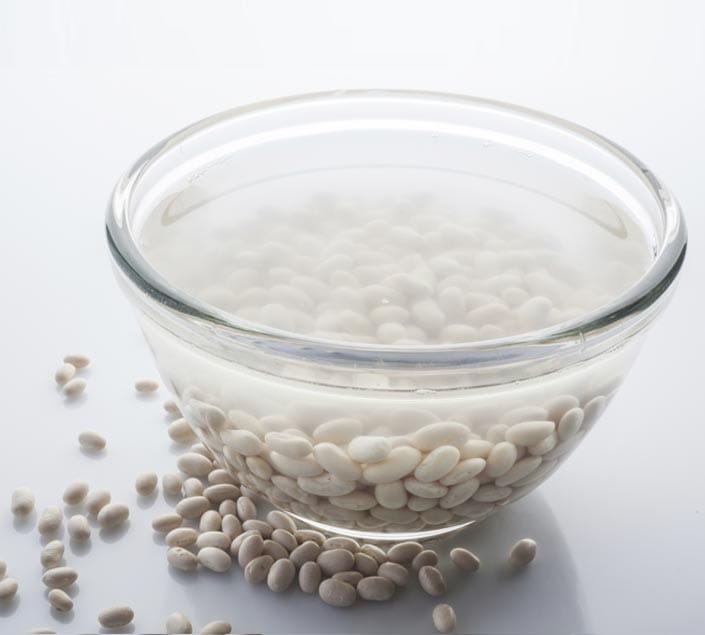Soaking nuts, grains, seeds and legumes
Grains, legumes and nuts are valuable sources of energy for the human body. But to get the most out of the nutrients they hold and to protect us from natural toxins, they should be soaked before consumption.
Nature has set it up so that nuts, grains and seeds can survive until the precise growing conditions are met. These foods are therefore naturally provided with toxic substances that can be removed with sufficient rainfall. To create a new plants, nuts, grains and seeds must germinate. Once it rains, the seeds get wet and the germination process starts. We can imitate this natural process by soaking our nuts, grains and seeds.
Furthermore, so-called food inhibitors and toxic substances found in nuts, grains and seeds can be identified, minimized or eliminated by soaking. These inhibitors and toxic substances are enzyme inhibitors and phytates (phytic acid).
Enzyme inhibitors
Have you ever had a stomach ache after eating larger amounts of nuts? This is because nuts contain numerous enzyme inhibitors that act as a strain on the digestive system.
The human digestive system has digestive enzymes and metabolic enzymes. Digestive enzymes support the breakdown of food. Metabolism enzymes are involved in every biological process of the body. Enzyme inhibitors clog, deform or denaturalize the active core of an enzyme.
By soaking foods, one can minimize the amount of enzyme inhibitors contained therein, as they are being flushed and reduced.
Phytic acid
Another problematic substance that grains, seeds and nuts contain is phytic acid. All seeds contain phytic acid in their outer layer (bran). Phytic acid is essential for the growth of seedlings that require energy and minerals.
However, phytic acid acts as a so-called anti-nutrient for our bodies. Phytic acids combined with calcium, magnesium, copper, iron and especially zinc block the absorption in the intestinal tract. Thus, blocking the reusing of nutrients in the body. Therefore, a diet with many unfermented whole grains can lead to severe mineral deficiencies and bone loss. Through soaking these foods, the phytic acid is neutralized.
Soaking in water also promotes the production of numerous beneficial enzymes. The amount of these enzymes increases the effect of many vitamins, especially vitamins B. During the process of soaking, gluten and other proteins that are partially difficult to digest break down into simpler components that are more readily available for absorption.
Duration of soaking
For the reasons mentioned above, it is important to soak beans, nuts, seeds and grains before eating them. Post soaking, you should empty the water and rinse the grains thoroughly until the water is clear again.
The simplest and most convenient rule for beans and grains is to soak them overnight. The optimal duration is 24 hours, the minimum time is 8. For nuts, the harder the nut, the longer it needs to be soaked. Hard nuts like almonds, pistachios and hazelnuts are best soaked for about 12 hours. Medium-hard nuts such as walnuts, Brazil nuts and pecans require less soaking time. They bulge faster because they are greasier. They should be soaked for about 5 hours. For soft nuts such as cashews, macadamia nuts and pine nuts, a soaking time of 3 to 4 hours is sufficient.
